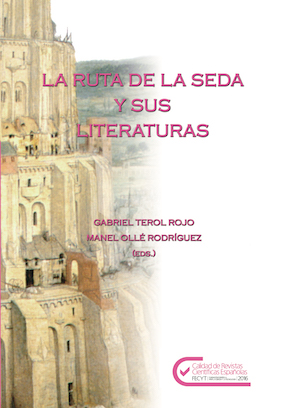The image of China in the literature of exile and the configuration of a cultural landscape
DOI:
https://doi.org/10.7203/qdfed.23.13468Keywords:
travel literature, dictatorship, exile, China, cultural landscapes Abstract
Abstract
The article studies the literary image of China, in the Spanish exile literature, through the novels of three authors invited by the chinese government: Sonríe China (1958) by Mª Teresa León and Rafael Alberti and Andanzas por la nueva China (2017) by Cesar M. Arconada. These writers, who were prominent authors of the Edad de Plata (Silver Age) of Spanish literature, narrate the journeys they made to the new China of Mao Zedong after the Communist Revolution. Their experiences present a specific rhetoric that revolves around fascination and dissidence. With this information, common elements and specific features of each author are analysed, together with the study of changes that have taken place in China. All these factors allow us the configuration of a cultural landscape and an appreciation of it.
 Downloads
Downloads
Downloads
Published
How to Cite
-
Abstract989
-
PDF (Español)683
Issue
Section
License
 Este obra está bajo una licencia de Creative Commons Reconocimiento-NoComercial-SinObraDerivada 4.0 Internacional.
Este obra está bajo una licencia de Creative Commons Reconocimiento-NoComercial-SinObraDerivada 4.0 Internacional.
Authors who publish with this journal agree to the following terms:
- Authors retain copyright and grant the journal right of first publication with the work simultaneously licensed under a Creative Commons Attribution License that allows others to share the work with an acknowledgement of the work's authorship and initial publication in this journal.
- Authors are able to enter into separate, additional contractual arrangements for the non-exclusive distribution of the journal's published version of the work (e.g., post it to an institutional repository or publish it in a book), with an acknowledgement of its initial publication in this journal.
- Authors are permitted and encouraged to post their work online (e.g., in institutional repositories or on their website) prior to and during the submission process, as it can lead to productive exchanges, as well as earlier and greater citation of published work (See The Effect of Open Access).




